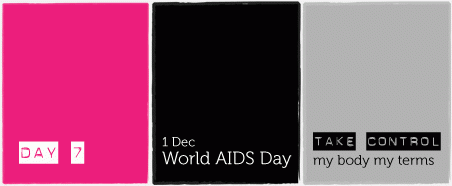
The UNAIDS 2009 AIDS Epidemic Update indicates that the number of people living with HIV worldwide continues to grow. In 2008, an estimated 33.4 million people are living with HIV, 20% higher than than the number in 2000, and three times higher than in 1990. Women still make up 50% of people living with HIV, with infection rates increasing in several countries, including countries in Latin America, Eastern Europe, Central Asia and Sub-Saharan Africa.
The study also found changing patterns in the epidemic. For example, In Eastern Europe and Central Asia, transmission that was previously mainly due to the sharing of infected needles amongst drug users is now increasingly characterised as through sexual trasmission. In parts of Asia, HIV spread is becoming increasingly characterised by sexual transmission amongst heterosexual couples.
Analysis of HIV prevention programmes revealed that integrating measures to address gender inequality and norms - including violence against women and exploitative forms of sex work - are critical in long-term solutions to the global HIV/AIDS epidemic.
Unequal power relations between women and men make it harder for women to negotiate for safer sex and condom-use with their partners. Ideas of appropriate gender roles when it comes to sexuality can present barriers to being frank about how you want to have sex, and on what terms. Women who bring up the topic of condoms might worry that this would be taken as an indicator of previous sexual experience or being seen as sexually "easy". In the same vein, men who bring up the subject of condoms might worry about appearing as "only having sex on the mind", or as being not "macho" enough to supposedly know that "sex is more enjoyable without a condom". Sometimes, people find it embarrassing to bring up the topic of sex before actually engaging in it, and hard to talk about condoms when they are already about to have sex.
The risk of not having this conversation however, is very high. One of the main ways in which sexually transmitted infections, including HIV, is transmitted is through unprotected sex with an infected person.
HIV can stop with each and everyone of us. Exercise control over what happens to our own bodies, and claim our right to define how we choose to engage in sexual relations.
My body, my terms. Let's talk about safer sex!
1. Safer sex & condoms: What's the problem?
- What are the barriers or problems that come up when the topic of condom-use is raised?
- For example, responses such as: "Don't you trust me?", "I don't feel anything with condoms", "Don't worry, I'm safe.", "Good girls just don't talk about sex (or condoms)" etc.
2. Safer sex & condoms: Spell it out
- Come up with a come back!
- For example: "Trust works both ways - use a condom", "Love is about protecting each other - let's start with a condom", "Turn me on - use a condom", "Keep it safe. Keep it hot. Keep it on".
- Play with the fridge magnet below, and spell out your terms.
- In the blackboard below, press SHIFT and click on an empty area, and type out a word.
- Make several words and put them together to make your sentence.
- You can also include your location, or the context of this conversation, or any other information you like.
- When you're done, do a print screen and save it.
3. Share it! Build the gallery of responses
- Share your response! Upload your print screen image to our media gallery.
- If you have an account on this site, login and upload your image under "Create" > "Media".
- Or you can email your image to us, and we will upload it to the gallery.
- You can also just type it out as a comment in this page. Click on the title of today's action, scroll down to add your comment.
- We can create the image for you and upload it to be shared with other campaigners :)
- Or spread the word! Post responses you see here on Twitter or on your status messages, or come up with your own. Make a loud noise about safer sex on World AIDS Day!
4. Offline activism: Get tested!
- Take control, and know about the HIV status of yourself and your partner. Before you make a long-term commitment to each other, know what you're committing to.
- Being HIV positive does not mean that life is over. There are many new drugs available that can help you stay healthy, and lower the amount of HIV virus in your body. You can manage it like any other type of diseases that need consistent attention, for example, diabetes. But like most diseases, the earlier you find out, the better your chances are for a longer and healthier life.
- Often, it's stigma that kills. People are worried about prejudice they might face to get tested or to tell their loved ones about their HIV status.
- Break the stigma! Get tested as an act of love. To yourself. And to the people around you.
Get some fast facts on HIV and how to prevent it from the UNAIDS website.
Take control. State your terms. Mark World AIDS Day today!
- Log in to post comments
